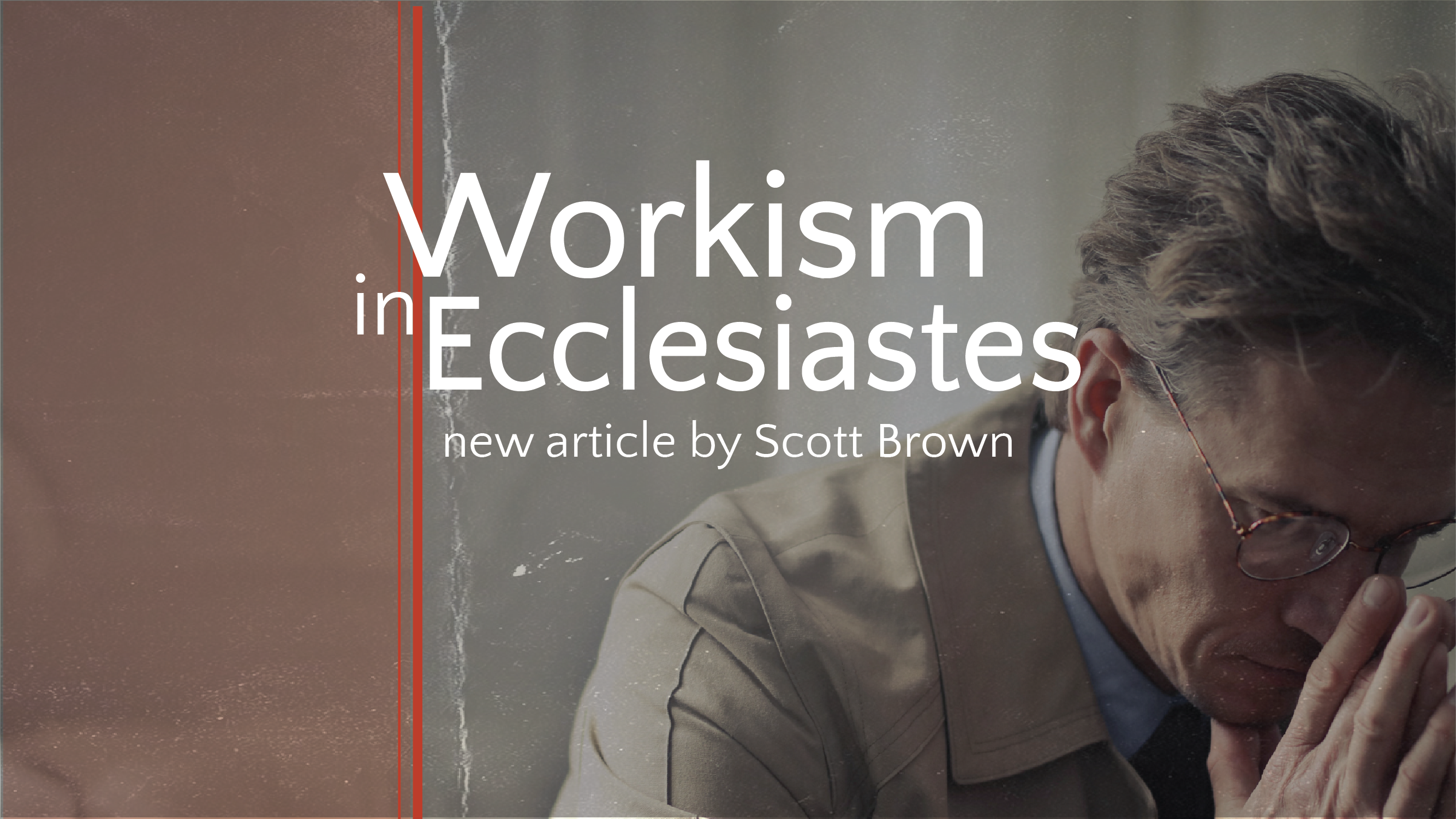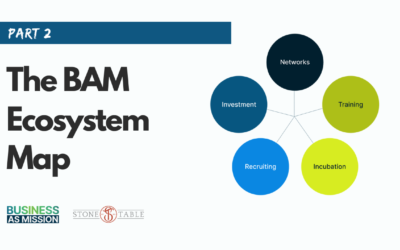Workism in Ecclesiastes

Workism in Ecclesiastes
In reading the book of Ecclesiastes these past few days, one of my favorite books in Scripture, I discovered some new insights from the Preacher, King Solomon, on work and the labor of man. While these insights may come across pessimistic in reading, they carry considerable weight in application regarding work & workism.
Workism and the Nature of Man
In the book of Ecclesiastes, the Preacher expresses his life experience in having sought after all that we today seek after as a society: wisdom & knowledge (1:17), pleasure (2:1-3), great works & possessions (2:4-8), folly (2:12-17), and great toil & labor (2:18-23). None of these satisfied his soul (2:22-23, etc.), and he found that the greatest pleasure in these chapters was to “eat and drink and find enjoyment in his toil” because these come from God, and only with God can we truly enjoy ourselves in these things (2:24-25). This points to the necessary pairing of God with work.
The nature of man wants to work, as God created it to be (Genesis 2:5, 15), but the fallen nature of man is to work unto toil and desperate labor (Genesis 3:17-19). While Christ has redeemed that for us through His atoning work on the cross, we see that there is still that tendency to lean into endless toil (wearisome, arduous work). It is here that we see the crying heart of workism: a desperate attempt to continue work for the sake of self-salvation.
Workism creates toil; a wearisome & endless labor, which is addressed in Psalm 127:2,
“It is in vain that you rise up early and go late to rest, eating the bread of anxious toil; for He gives to his beloved sleep.” (ESV).
The corrupt nature of man seeks to work into oblivion, yet God gives rest to His beloved (us). We work beyond rest, labor beyond sleep, and toil beyond comprehension, yet God grants to us peace & rest. How can we receive this rest if we are constantly caught up in the whirlwind of workism, ceaselessly striving to make our ends meet where we alone designed them to meet?
The truth is, we cannot. Workism does not rest.
It is in vain that we wake up early and work until late at night, eating the fruit of our desperate labor, for our God wills to give us sweet rest (Proverbs 3:24).
Workism and God’s Place
Remembering God has always been a theme in the Old Testament. Constantly His people were instructed, not just encouraged, to build altars or stack stones or celebrate festivals in honor of God’s work in their lives – reminding them of His goodness & provision in times past. Yet, we tend to forget His goodness, and I think our forgetfulness is a natural response to our fast-flowing society. We get swept up into the hustle, work becomes our sole source, and workism our new religion. Just like the Israelites.
I remember countless times that God miraculously provided for me in my semester tuition payments – countless times! Yet, every time that date drew near, I was almost obsessed with this idea that it was me alone that had to come up with the funds, work more, and make these ends meet. That’s the heart of workism – excluding God from the picture of provision.
Don’t get me wrong, we are absolutely expected to work [and the Bible is explicit about that], but there are times & places that God has appointed to give us divine intervention and provide supernaturally for us as well. He rejoices in giving us “I don’t know how this is going to work” situations and then proving Himself to be faithful in being the only provider for our lives.
I love God, but that’s hard. And it’s hard to remember our place sometimes, too; especially when we are doing well financially.
Workism and Wealth
There really is no hope to be found in storing up riches. The Preacher wrote,
“Those who love money will never have enough. How meaningless to think that wealth brings true happiness! The more you have, the more people come to help you spend it. So what good is wealth—except perhaps to watch it slip through your fingers!” (Ecclesiastes 5:10-11, NLT).
Is that kind of a dream-crusher for aspiring wealthy believers?
Nope! God isn’t telling us that wealth is bad, but rather “how meaningless to think that wealth brings true happiness” (or true provision). Yet, this is what workism tells us: it is work & wealth that bring these things to us.
Workism sets us up to feel like we are the responsible party for provision, sustenance, and salvation. Workism puts us in the savior seat, removing the need for the grace of Jesus.
What is work, then? Is it simply a void practice, and wealth a sheer distraction?
Of course not.
“Behold, what I have seen to be good and fitting is to eat and drink and find enjoyment in all the toil with which one toils under the sun the few days of his life that God has given him, for this is his lot. Everyone also to whom God has given wealth and possessions and power to enjoy them, and to accept his lot and rejoice in his toil—this is the gift of God.” (Ecclesiastes 5:18-19).
As we see, there is a tension to be held. One between workism and true joy.
The Tension of Contentment
Contentment, I believe, is that tension between workism and joy. The Apostle Paul wrote on this very matter, stating in Philippians 4:11-13,
“… I have learned in whatever situation I am to be content. I know how to be brought low, and I know how to abound. In any and every circumstance, I have learned the secret of facing plenty and hunger, abundance and need.” (Philippians 4:11-12).
What was Paul’s secret? How did he sustain this attitude & contentment while in prison, facing a lack of provision & company? Verse 13 tells us:
“I can do all things through Him who strengthens me.” (Philippians 4:13).
It wasn’t Paul’s positive attitude, meditation regiment, or yoga exercises that kept him content in these circumstances, but the secret of his success in being content, anywhere and at any time, was that Christ was his source of strength to do all these things. Paul was not his own source.
Workism practices us being our own source, teaching ourselves that whatever we lack is more important than what we have. Workism tells us that our lack of provision is a result of our own hands not doing enough, and that rather than be content with our situation and practice the joy of the Holy Spirit, we need to work more, do more, and be more.
Yet Paul says that Christ is enough. Jesus is enough to be your contentment, in any circumstance. This does not mean accept failure at every point and succumb to poverty as a spiritual discipline, no, but it does mean that whatever season you are in, like Paul, abounding or facing lack, that Christ is enough to sustain you. Work itself just won’t do it but work with Christ at the center will be the perfect blend of spices to season your life’s outcome.
Finality
Workism pulls us away from contentment, but contentment keeps us in the perfect tension between overload and desperation. Contentment is contingent upon dependency, but what we depend on is the most important part of the equation. If we depend solely on ourselves, we enter workism, but if we depend on Christ and the power of the Holy Spirit, we are able to stand comfortably in contentment and deny ourselves the fleshly desire of workism.






